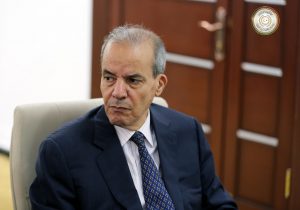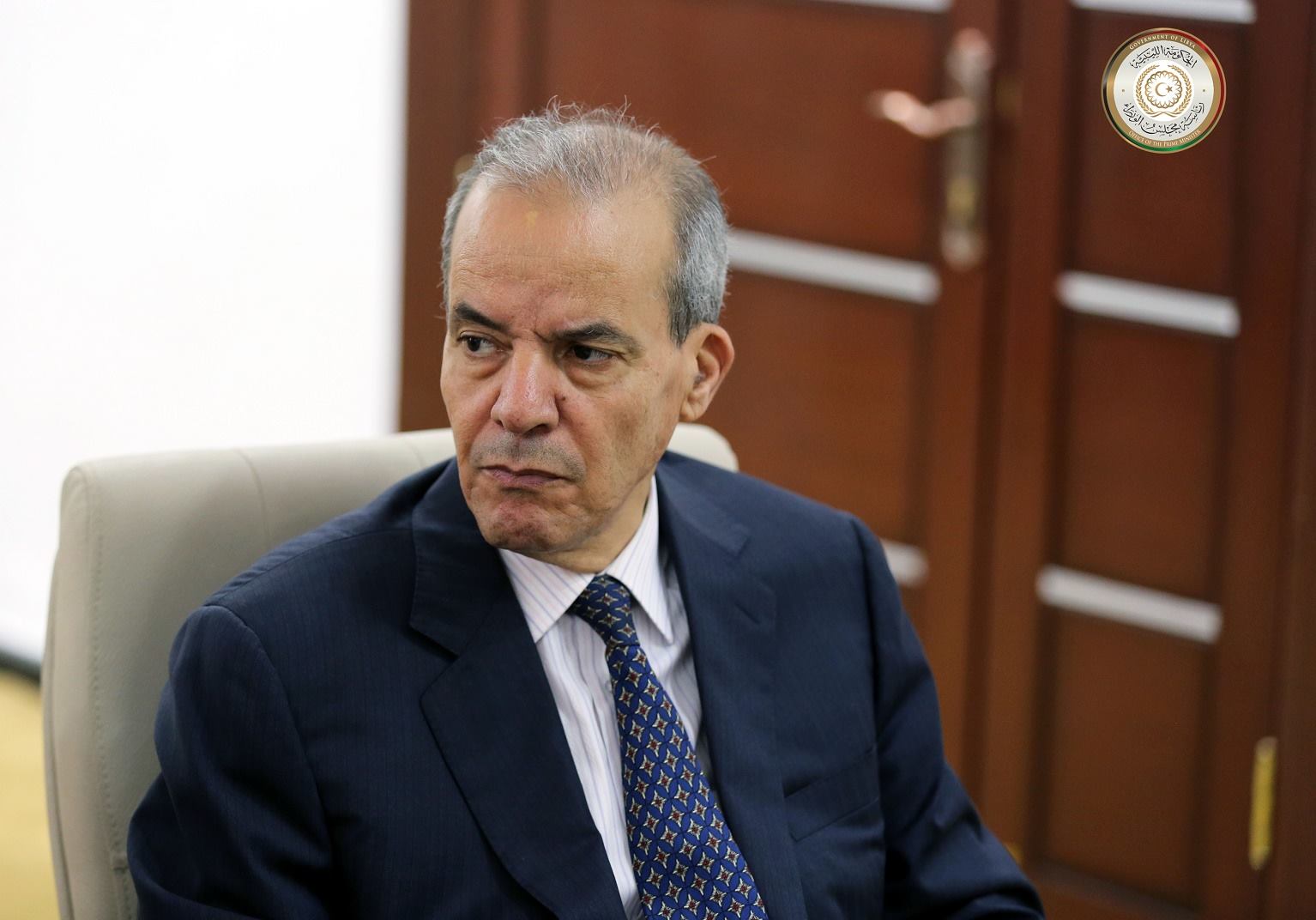By Sami Zaptia.

London, 13 August 2016:
Hassan Bouhadi, chairman of the Libyan Investment Authority (LIA) has resigned with immediate effect. Bouhadi is the LIA chairman appointed and recognized by the Tobruk-based House of Representatives (HoR) and its Abdullah Thinni government based in Beida.
The LIA’s Board of Trustees, headed by Interim Prime Minister Abdullah Thinni, has appointed Ali Shamekh as Chief Executive Officer.
In his resignation letter Bouhadi said that he was not able to conduct his business due to the internal political conflict in Libya which put him in ‘’a critical situation’’ and due to the ‘’opposing demands to the goals of the LIA’’. He said that due to his ‘’values and principles’’ he was tendering his resignation.
In reality, sources have told Libya Herald that Bouhadi had no choice but to resign after falling out in a big way with Prime Minister Abdullah Thinni and the HoR. Last week, matters came to a head when Bouhadi was put under house arrest.
Bouhadi, who runs the LIA from its Malta offices, had arrived in Benghazi to visit his family when the Libyan eastern government of Abdullah Thinni ordered ‘’fifteen vehicles to his house’’, a source said.
Libya Herald has received a copy of an internal letter from Prime Minister Abdullah Thinni to his Interior Minister ordering Bouhadi’s ‘’prevention from travel through any border’’ and the ‘’holding of his passport until investigations with him are completed’’.
Bouhadi’s passport was confiscated and he was forced to attend a meeting of the LIA’s Board of Trustees, headed by eastern Prime Minister Abdullah Thinni. At the meeting, Ali Shamekh, a veteran from the Qaddafi era and former head of Libya Oil Holding, was appointed as LIA CEO. Bouhadi published his resignation letter, dated 11th August, as soon as he had left Libya.
Bouhadi, it must be recalled, had been ignoring calls from the HoR and the Board of Trustees to hold a meeting of the LIA’s board of directors and of the Board of Trustees. Ironically, the Administrative Control Authority (ACA), the state oversight body, had come down on the side of the LIA in its tug-of-war with the HoR and had ordered a freeze on all LIA decrees on 21 July. It had ordered that the LIA’s present personnel structure is maintained in order not to destabilize it as the LIA ‘s was going through a number of sensitive court cases in London.
Highly placed sources, who insisted on anonymity, told Libya Herald that Bouhadi was coming under increasing pressure to take actions and decisions that were not in line with the aims of the LIA. The source said some of these were in favour of specific personal interests that the HoR wanted to appoint to the LIA’s board of directors.
On another level, it will be recalled that Bouhadi and Abdulmajid Breish, appointed by the outgoing Tripoli Salvation Government, were fighting for control over the chairmanship of the LIA in a London court.
It is also worth recalling that the LIA’s assets have been frozen by the UN since the 2011 revolution with minimal room allowed for the LIA board to administer the assets. The LIA is also in the midst of a court case with Soc Gen and Goldman Sachs.
To add to the complexity of the Libyan scenario, the international community, through the Libyan Political Agreement (LPA) signed in December 2015 in Morocco and backed by a UN Security Council resolution 2259, only recognizes the Tripoli-based Faiez Serraj Presidency Council and Government of National Accord (PC/GNA) as the sole legitimate Libyan government.
The international community, however, under the LPA does recognize the HoR as the sole legitimate parliament in Libya and under the terms of the LPA, the HoR must approve the GNA. The HoR has failed to convene a quorum since the start of 2016 in order to vote-in the Faiez Serraj-led GNA.
With regards to the LIA, matters are further complicated by the mechanism for appointing the LIA chairman and its relationship to the incumbent prime minister.
According to the established structure of the LIA, its chairman and board of directors are appointed by its board of trustees which is headed by the incumbent prime minister. This is still currently headed by Abdullah Thinni. If and when the HoR approve the GNA, the prime minister of the GNA would then head the board of trustees.
Sources have informed this newspaper that Bouhadi had held at least one meeting with Faiez Serraj in Tripoli.








